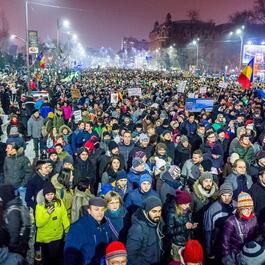
On May 17, the centrist, pro-EU Nicusor Dan narrowly defeated George Simion, a far-right populist, in Romania’s Presidential Election. The bout was the latest in a string of contests that stoked fears for European liberal democracy, the rise of right-wing populism, and Russian meddling. Media inside and outside Romania leaned into the danger a Simion victory posed, and with Dan’s victory, how Romania can serve as the latest European democracy refusing to slide backward. But does this narrative really capture Romania’s political atmosphere? What were Simion’s and Dan’s base of support? And does Simion’s defeat signal the death knell of the far right in Romania or merely a brief setback? And where does Viktor Orban and Donald Trump figure in all this? To get some clarity, the Eurasian Knot turned to Stefano Bottoni and Tamás Kiss for their insight and analysis of the Romanian political field before and after this consequential vote. Special Co-Host: Zsuzsánna Magdó is Associate Director at the University of Pittsburgh’s Center for Russian, East European, and Eurasian Studies where she manages regional studies programs to support interdisciplinary scholarship and public education on the world regions of Central and Eastern Europe, Russia, and Central Eurasia. Guests: Stefano Bottoni is Associate Professor in the Department of History, Archaeology, Geography, and Performing Arts at the University of Florence. He is the author of several books. His most recent book, Orbán: A European Despot, is forthcoming in English and German. Tamás Kiss is Senior Researcher at the Romanian Institute for Research on National Minorities. He is the author of several books on ethnic relations in Romania and Hungary. He’s the editor of Unequal Accommodation of Minority Rights: Hungarians in Transylvania published by Palgrave. Send us your sounds! Patreon Knotty News Hosted on Acast. See acast.com/privacy for more information.
From "The Eurasian Knot"


Comments
Add comment Feedback